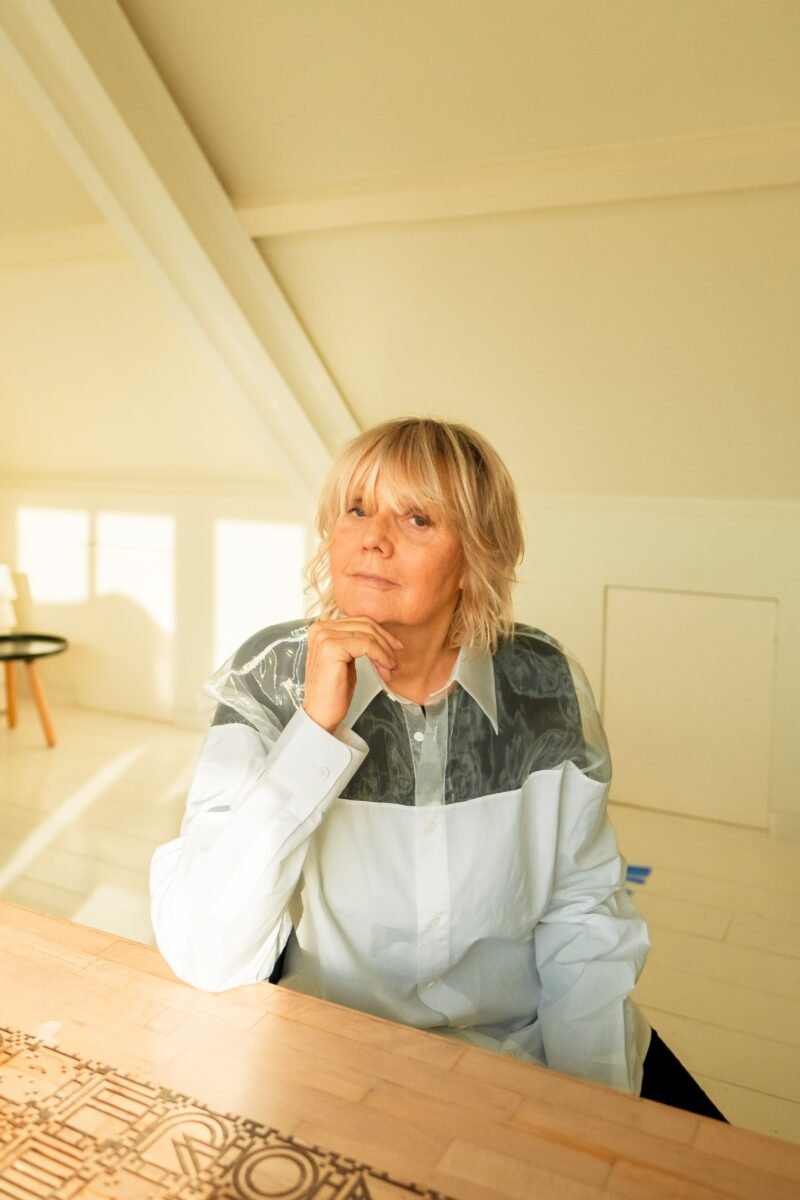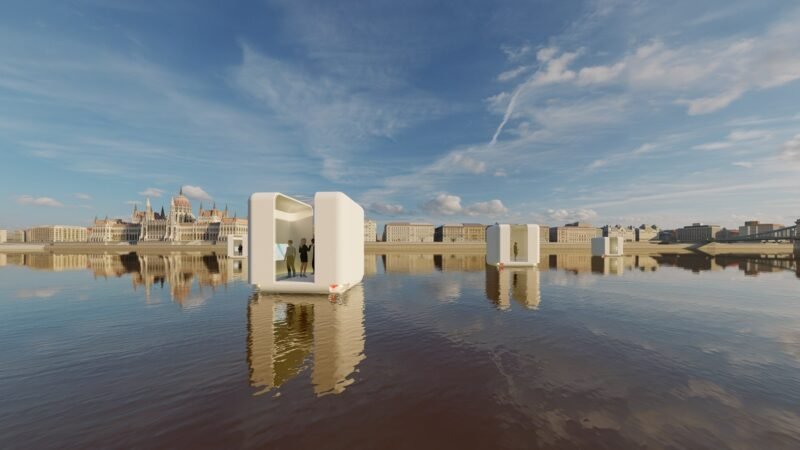Amsterdam’s Disco Taxi: A Nightclub On Wheels
Taking a cab in Amsterdam to enjoy nightlife is often a mood killer. When you’re lucky the driver accepts your short ride, but will grumpily honk at other cabs while listening to weird music. How different is this with the Disco Taxi! You will arrive amped up as driver Maroni Sonelli screams your name through a microphone to make sure everyone knows you’re there.

Most people end up in the Disco Taxi by coincidence. Maroni’s space wagon doesn’t reveal its nature from the outside, but as soon as you get inside it starts. The cosy van contains every disco item you can think of — from shiny disco balls, television screens, blacklight, and a good speaker set to a plastic dog with a glitter necklace that moves to the beat. And then there’s the voice of happy driver Maroni echoing through a microphone, singing along with the music. He prefers disco music, but has a collection extending way beyond this genre. Maroni comes from a musical Surinamese family — while his brother Ray is a famous singer in Suriname, Maroni chose to take the stage in the streets of the Dutch capital with his discotheque on wheels.
The Disco Taxi started in 1999 and soon the media referred to Maroni as “the singing taxi driver”. But fame is relative: “I only give my number to clients with whom I feel a special bond, otherwise they will just call me to joke around”. Being their regular driver, Maroni follows the different phases of the lives of his clients. “First they go out to party and find love. Once they’ve found it, that generation is over and a new one starts. There was this client that I drove around for years. Recently he asked me to drive his daughter to her first party. Now she calls me every week instead of her dad.”

Experiencing a ride in the Disco Taxi makes you look at the city in a different way. Dancing and singing amidst the dark streets and city lights adds an extra emotional layer to the experience of Amsterdam. That experience is different for everyone, and Maroni makes sure that he creates the atmosphere passengers feel comfortable with. “Older people enter hesitantly and I turn on some soft music, but by the end they ask me to turn up the volume. Sometimes drunk guys touch my sound system. I distract their attention by showing some beautiful ladies on the TV screen introducing it as a ‘short intermezzo’. Instantly you are the king. That’s pure entertainment and observation of people, you obtain a certain psychological knowledge.”



The Disco Taxi has an interesting interaction with the city, given its flexible nature. The cab can transform its atmosphere to the occasion. Also, it’s in a way independent of the urban surroundings, since it does not matter which street it’s in — it all takes place inside the intimate van. On the other hand, it does interact with the surroundings because passers-by are intrigued by the flashy lights, waving hands and music echoing across the streets.

The discotaxi can be conceived as an independent yet interactive space that moves around music and emotions. Just imagine how many stories from people all over the world have traveled across the streets. Anything could happen in this space and, according to Maroni, it did. “I witnessed people falling in love in my car. I once drove a client and he saw this girl looking for a cab and offered to share. She entered and I started singing. That evening it happened. Now they have three kids and invited me to sing at their wedding.”
Anna Swagerman (1985) studied psychology and majored in urban sociology in Amsterdam. She did part of her studies in Buenos Aires where her fascination for cities arose. She loves taking in the energy of new places, writing, photography, and contemporary art. Currently she is working on different projects; from social work and community arts to working for an interdisciplinary team for city development.
This summer Samsung and Pop-Up City are exploring urban creativity in the Netherlands through a series of photo reports made by readers with the new Samsung Galaxy Tab S.



